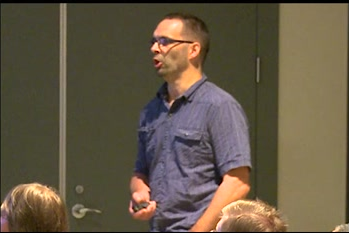CppCon 2014 Writing Data Parallel Algorithms on GPUs--Ade Miller
 While we wait for CppCon 2015 in September, we’re featuring videos of some of the 100+ talks from CppCon 2014. Here is today’s feature:
While we wait for CppCon 2015 in September, we’re featuring videos of some of the 100+ talks from CppCon 2014. Here is today’s feature:
Writing Data Parallel Algorithms on GPUs
by Ade Miller
Summary of the talk:
Today most PCs, tablets and phones support multi-core processors and most programmers have some familiarity with writing (task) parallel code. Many of those same devices also have GPUs but writing code to run on a GPU is harder. Or is it?
Getting to grips with GPU programming is really about understanding things in a data parallel way. This talk will look at some of the common patterns for implementing algorithms on today's GPUs using examples from the C++ AMP Algorithms Library. Along the way it will cover some of the unique aspects of writing code for GPUs and contrast them with a more conventional code running on a CPU.
